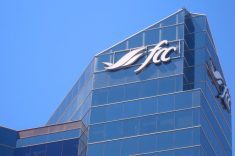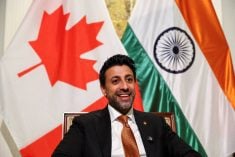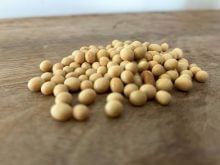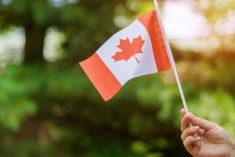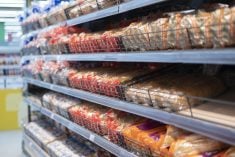MOSCOW (Reuters) — Russia’s government has eased some self-imposed bans on Western food, allowing imports of material that could be used to boost its own agricultural industry and softening the costs on some firms in neighbour Finland.
Earlier this month, Russia banned all meat, fish, dairy, fruit and vegetable imports from the United States, the European Union, Norway, Canada, and Australia for one year to retaliate again sanctions slapped on Moscow over the Ukraine crisis.
The tough bans isolated Russia from Western goods to levels unseen since Soviet Union times, while also leading to sharp price drops and financial problems at many European food companies, deprived of a large market.
Read Also

Lending policy still focused on primary producers: FCC
Farm Credit Canada said it has not changed its business practices and remains committed to supporting all producers, after a report from an Ottawa-based media outlet claimed otherwise.
On Wednesday, the Russian government said it would allow imports of hatchlings of salmon and trout, as well as seed of potatoes and of onions, sugar corn hybrid for planting and peas for planting.
Russia has been importing up to 50 percent of fish from Norway and prices for salmon shot up steeply in Russia in recent days. The government said it would encourage imports of salmon from Chile and help develop its own fish farming.
On Wednesday, the government also said the bans would exclude lactose-free milk and products, biologically active supplements, vitamin-mineral complexes, flavour additives, protein concentrates of animal and plant origin and their mixtures, food fibres and food additives including complex ones.
Finland’s dairy co-operative Valio, the company hardest hit by the bans in the country, said the decision on lactose-free milk products was good for the firm.
“This means a great deal to us as lactose-free products are very popular in Russia and stand for about 10 percent of our Russian exports,” said spokeswoman Pia Kontunen.


